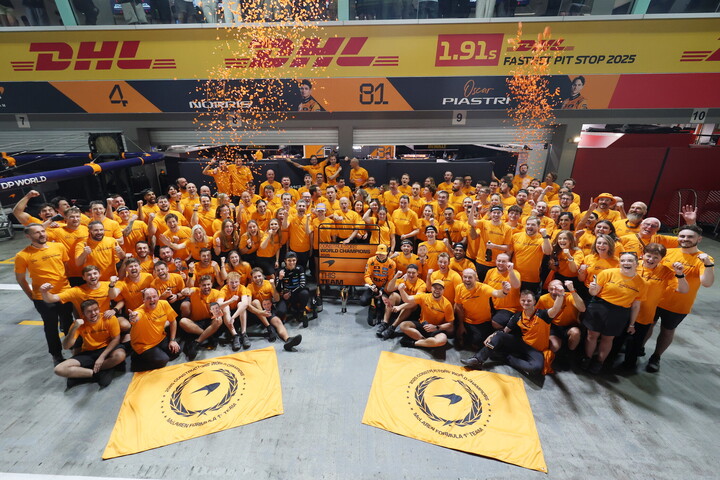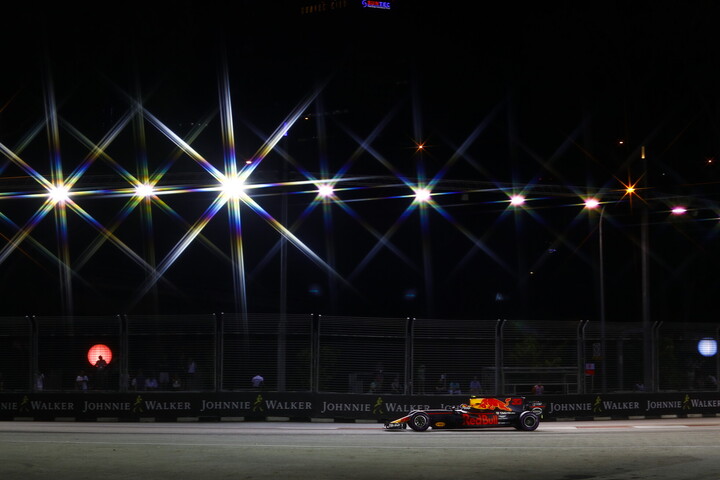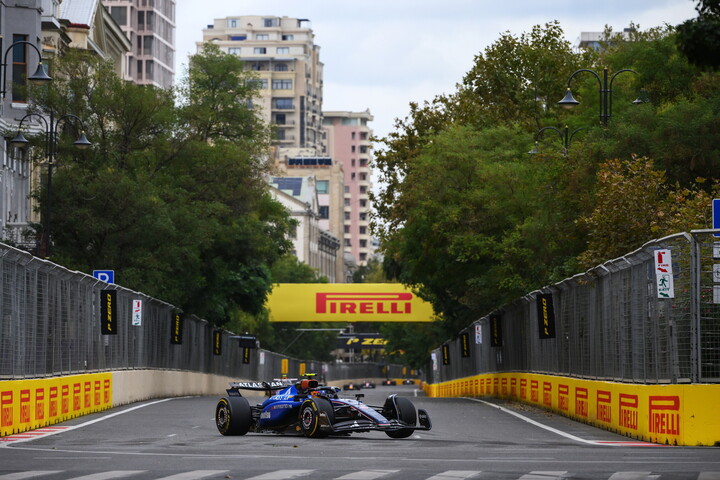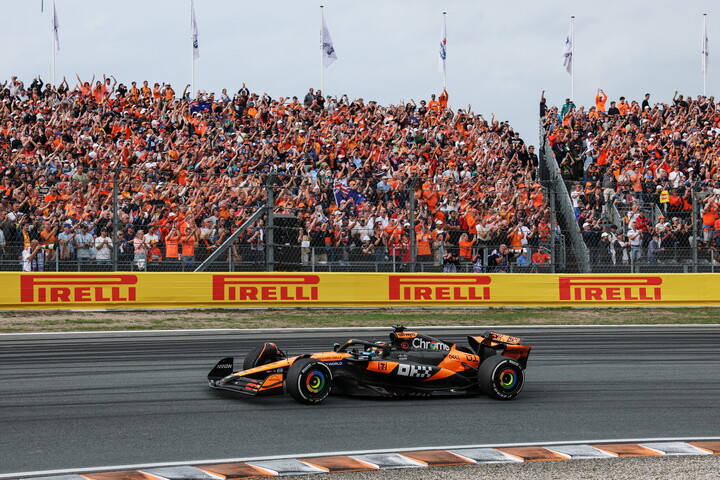On this week #26: Nico Rosberg

Nico Rosberg was born in Wiesbaden, Germany on 27 June 1985, the only son of 1982 Formula 1 World Champion, the Finn Keke and his German wife Sina. As a youngster, Nico was inevitably drawn to motor racing, not just because of his father's credentials, but because he was brought up in Monaco, home to the most famous and unique Formula 1 Grand Prix. And so it all began in karts, when he was just six years old. If he hadn't convinced his father to help him follow in his racing footsteps, Nico might yet have had a career in the sport, being an excellent student who could have had a place on an engineering degree course at Imperial College, London. He also has a gift for languages that these days finds him providing expert opinion for three different TV stations, from three different countries at the same Grand Prix.
In 2000, he crossed paths for the first time with the man who would become his nemesis, Lewis Hamilton. The same age and team-mates in the same kart team, they became friends as well as rivals, but then after a couple of years, thanks to help from his father, now his manager, Nico switched up to single-seaters, racing in the Formula BMW ADAC and even managed to have a test in a Williams F1 car, while Lewis' family were struggling to make ends meet. By 2005, the younger Rosberg was racing in the brand new GP2 Series with the ART Grand Prix team, while also fulfilling the role of third driver for Williams in Formula 1, the team with which his father had taken the world title 23 years earlier. He took the GP2 title which earned him his F1 seat at Williams alongside Australia's Mark Webber for the following year.
On his debut in Bahrain, Nico set the race fastest lap, but that was to be the highpoint of his rookie season in a car that was not the most competitive. Over the next few seasons, the switch from Ford to Toyota power saw an uptick in the Grove team's performance and in 2008, racing on a German license, Nico made it to the podium, with a third place finish in Australia and a second in Singapore. There was further progress in 2009, when he finished in the points eleven times. That brought him to the attention of Mercedes, which was making the step up from engine supplier to running its own team. He found himself with Michael Schumacher as a team-mate and the brilliant Ross Brawn as his team boss, the best possible school to help his career really take off.

In the meantime, his former friend, yet to be an enemy Lewis Hamilton, has not only joined him on the F1 grid, but also outperformed him. After taking the GP2 title also with ART Grand Prix, proving that team's ability when it comes to choosing drivers, Hamilton came close to taking the F1 crown in 2007 in his rookie year with McLaren, before clinching it the following season. At the time, the pair were not really rivals on track, as McLaren, although not the dominant force it had been in the late 80s and 90s, was still capable of winning races regularly, all the way through to 2012, whereas Mercedes was making slow but steady progress, with the German securing the three-pointed star's first win in this new era, in Shanghai in 2012.
By the following year, Lewis and Nico would be team-mates once more, after Niki Lauda and Ross Brawn convinced Hamilton to leave McLaren and race alongside Nico. 2013 was the final year of normally aspirated engines in F1 and Mercedes still suffered from reliability problems. They did manage to take three wins, two with Nico and one with Lewis, while the Englishman finished ahead of the German in the championship standings.
2014 saw the switch to hybrid power and the start of the Mercedes era. The team had effectively worked for the best part of four years on the new power unit and on putting together a team that was now a force to be reckoned with, and with Toto Wolff now in charge, it proved to be an irresistible force. That year, the team won 16 of the 19 Grands Prix, naturally accompanied by both titles, with Lewis taking the Drivers' crown, with 11 wins, compared to five for Nico. Strange but true, the title fight went down to the wire because of a weird decision from Bernie Ecclestone, to award double points for the final round in Abu Dhabi. 2015 was another show of strength from Mercedes, again 16 wins from 19 races, while Nico began to close on Lewis, taking six wins to the Englishman's ten. However, tensions were rising between them, as was clear to see in the cool-down room after the race in Austin, where Lewis clinched the title, when the pair lobbed the Pirelli caps to be worn on the podium at one another. After that, Nico even engaged the services of a mental coach to help him prepare for the following season.

Nico was on blistering form at the start of the 2016 season, taking four wins on the bounce. Then came Barcelona, where once again the Mercedes pair locked out the front row, but at turn 4 on the opening lap, they collided and both had to retire. It was war and from then on, Nico demonstrated he had learned the tricks of the trade, proving to be a cunning and devious adversary, which served to wind up his team-mate more and more. After disaster in Spain, Nico won in Baku, Spa, Monza, Singapore and Suzuka, but Lewis was not beaten yet, taking ten wins, although he paid a high price with no points when his engine expired in Sepang.
At the final round in Abu Dhabi, for Lewis to take the title, not only would he have to win the race, but he had to hope that Nico finished outside the top three. However, as usual, Mercedes was in a class of its own, delivering yet another one-two finish. It meant that the Rosberg family now had two world titles to its name. “The feelings over the last few laps were simply unreal, crazy,” revealed Nico after the race. “That was definitely not the most enjoyable race I've ever had. Enormous pressure, incredibly intense! Horrible! The slightest mistake and it would have been over, so difficult. The first feeling is one of relief. At the end, I was crying my eyes out.”
It was the beginning of the end. The following Friday night, Vienna hosted the traditional FIA prizegiving ceremony, but a few hours earlier a press release arrived which was a bolt out of the blue, not just for Mercedes but for everyone involved in racing: Nico Rosberg was retiring. “This year was extremely difficult because I gave it my all,” he said. “I pushed like crazy in all directions. I realised my childhood dream and I'm not willing to commit myself in this way again. I have decided to follow my heart and my heart has told me to stop and dedicate myself to other things. It was wonderful, but it seems the right thing to do.”

Nico was true to his word and did not race again, spending time with his wonderful family and enjoyjing the role of TV pundit, but above all working as an entrepreneur dedicated to promoting sustainability. His Formula 1 career ended with 23 wins, 30 pole positions, 20 fastest race laps and 57 podium finishes from 206 Grand Prix starts. That world title meant the Rosbergs are only the second father and son to both clinch the Formula 1 world title, after Graham and Damon Hill.




